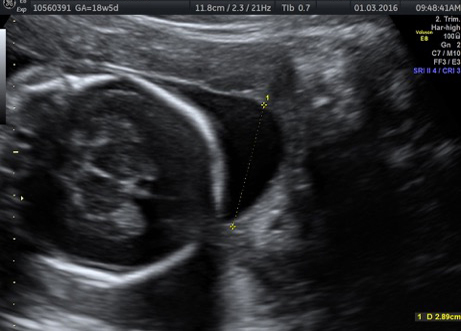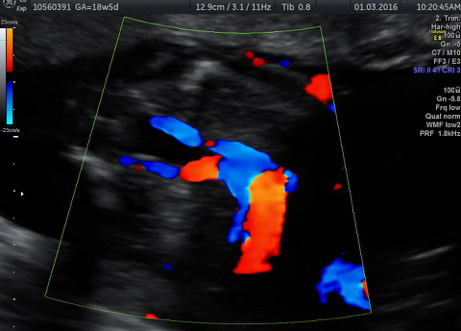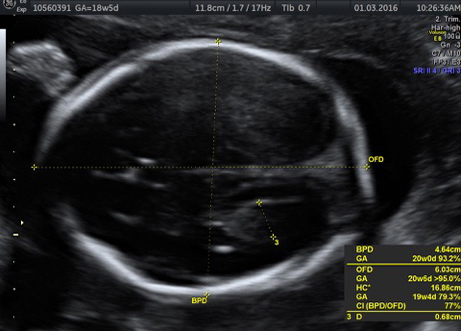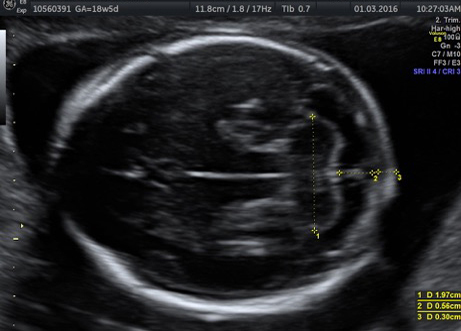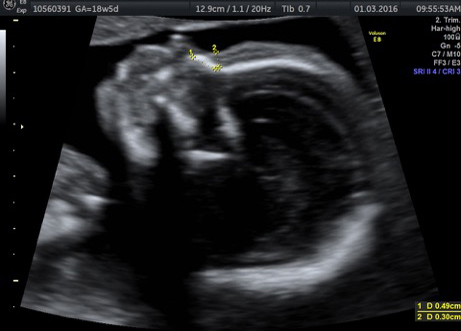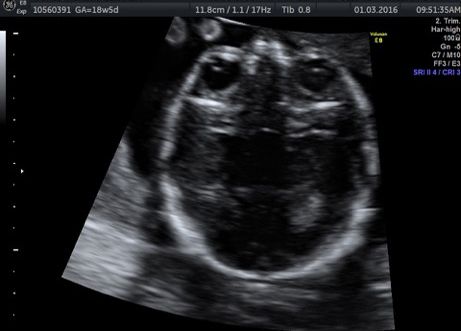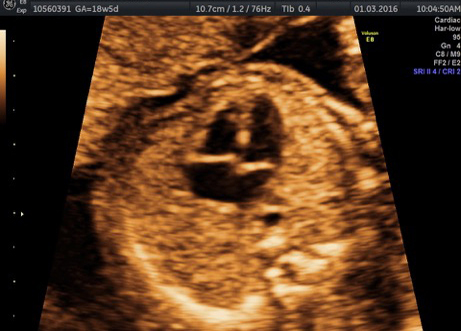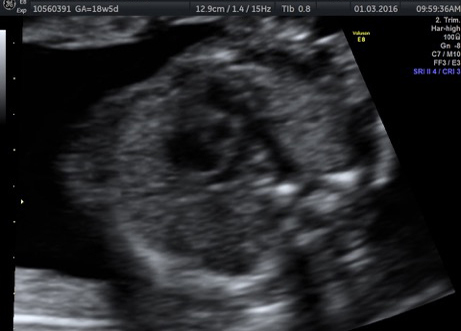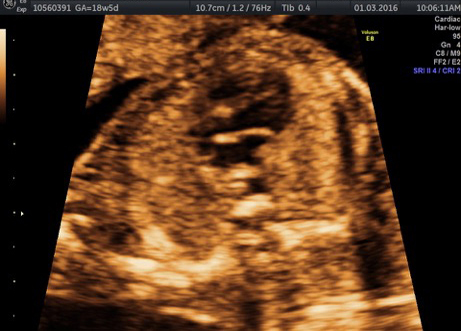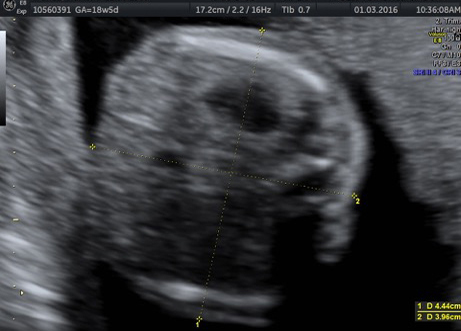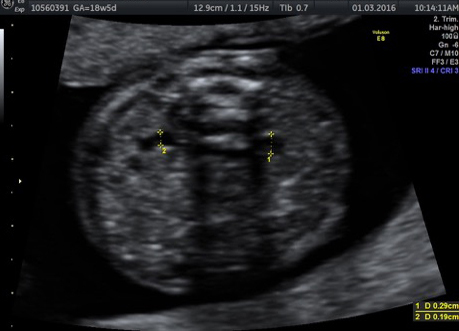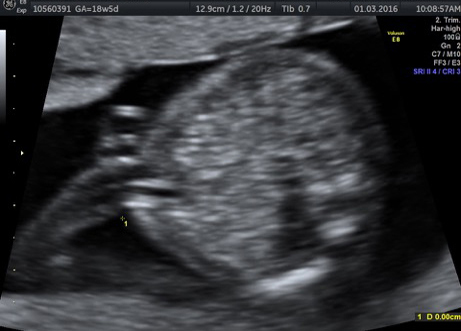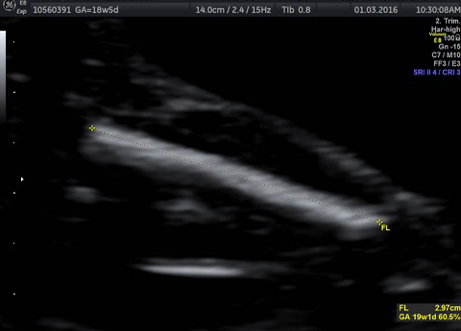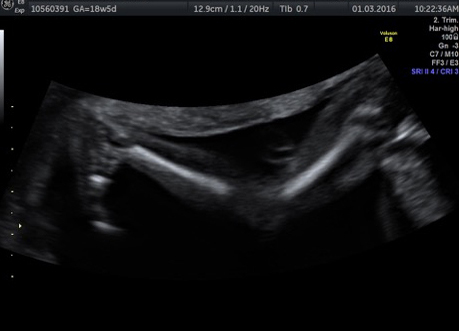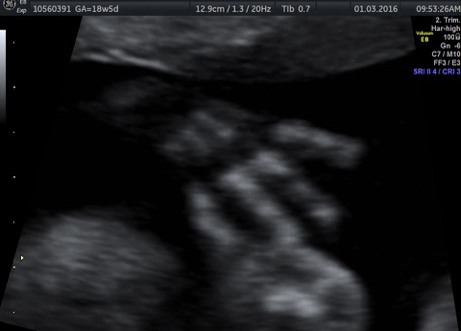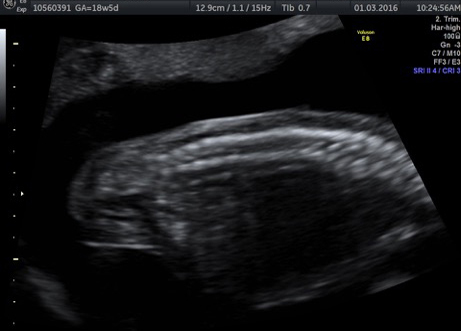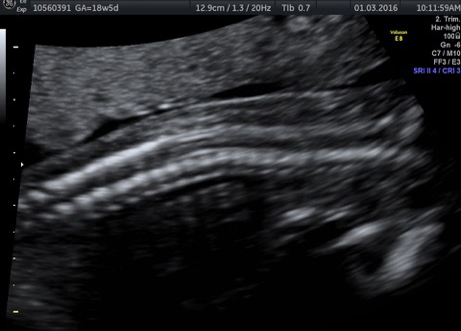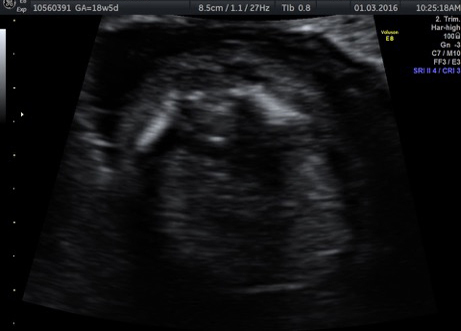The term hydrops fetalis, or fetal hydrops, refers to a condition in which the fetus shows signs of fluid accumulation in the body. Hydrops is defined as the presence of abnormal fluid in at least 2 spaces where it is not supposed to be, such as in the abdominal cavity (ascites), chest cavity (pleural effusion), cavity around the heart (pericardial effusion) or in the skin or scalp (referred to as edema).
Fetal hydrops may occur due to immunological reasons (usually due to mismatches in the blood type between the fetus and mother) or due to non-immunologic reasons, referred to as “non-immune” hydrops. It is common that non-immune hydrops is due to a developmental malformation or problem in the fetus that affects the circulation of blood throughout the fetus’ body. Non-immune fetal hydrops may develop for fetuses that have the following problems: large lung masses (or CCAMs); large tumors, such as sacrococcygeal or cervical teratomas; fetal hydrothorax (or chylothorax); fetal heart problems (or defects) or chromosomal abnormalities. Your doctors will try to identify the cause of the fetal hydrops. If a specific cause is identified, your Fetal Center physicians will discuss what treatment options may be available.




